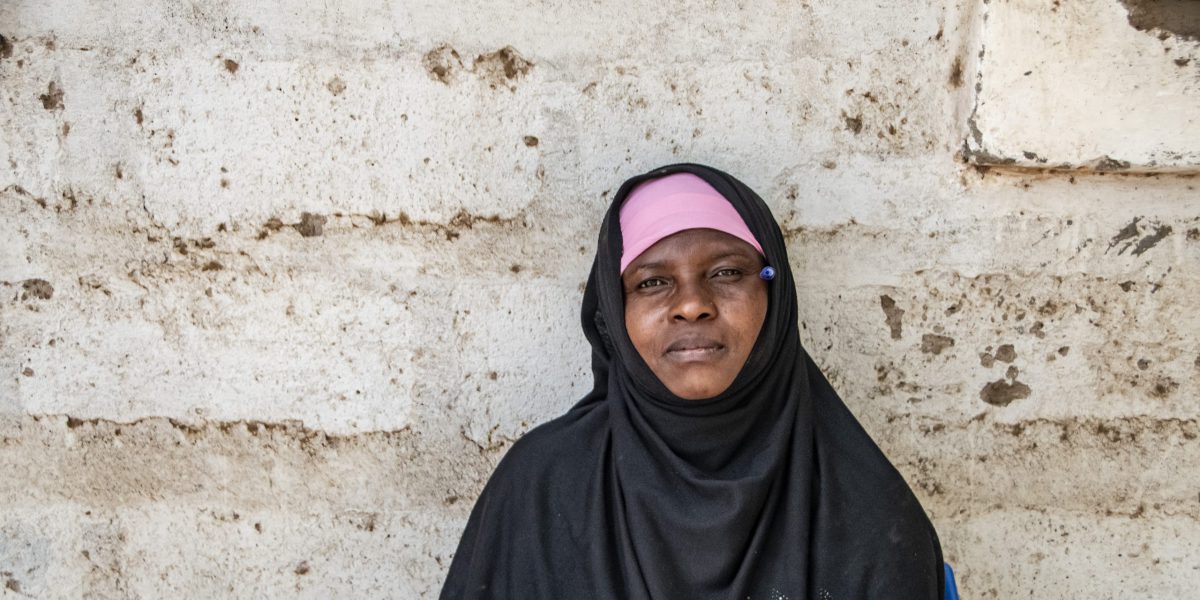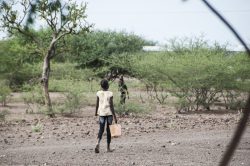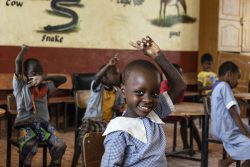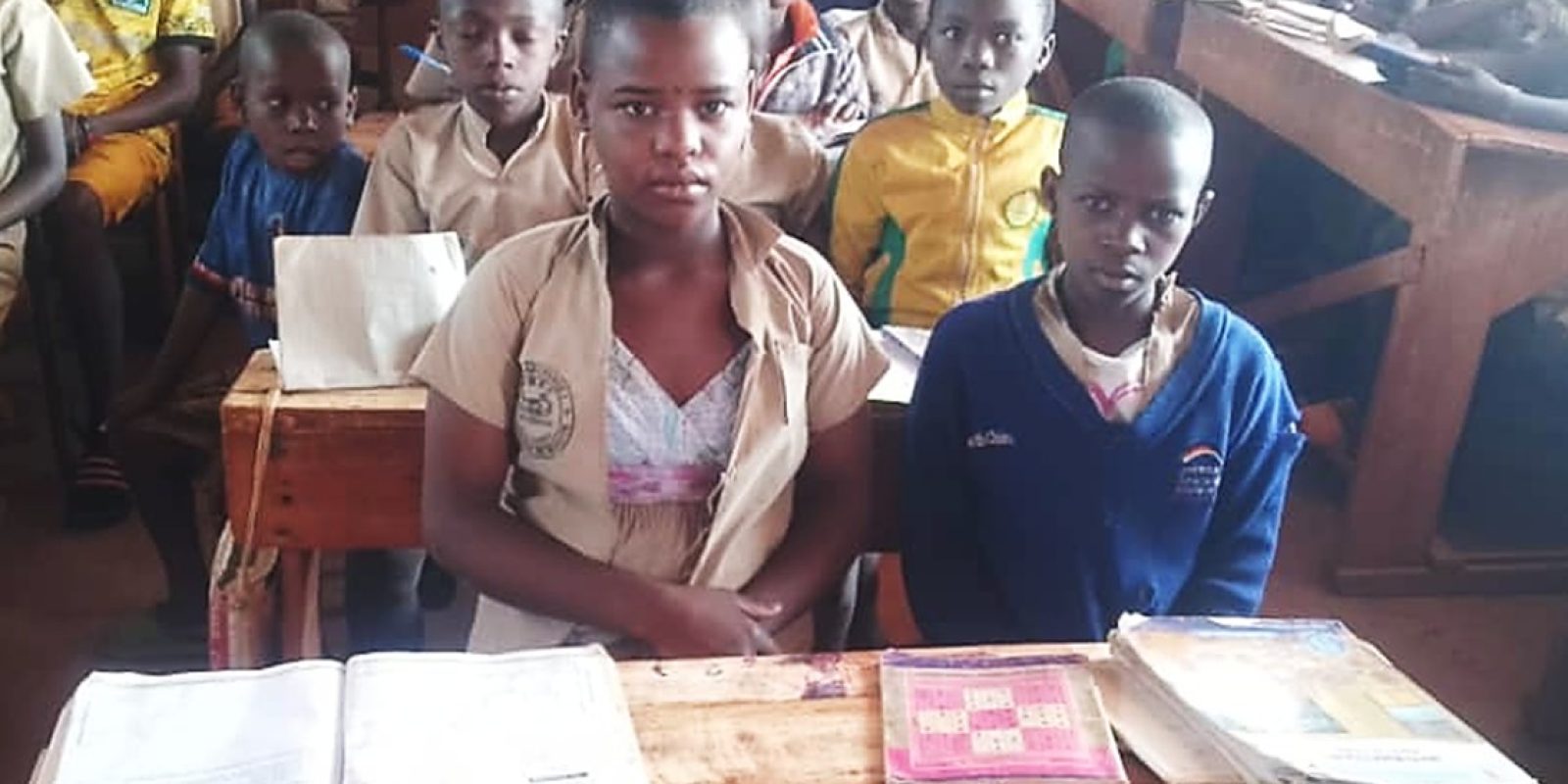Hawa’s resilience story
11 October 2022|Paula Casado Aguirregabiria

Hawa is a young Somali woman living in Kakuma Refugee Camp (Kenya). Hawa is paraplegic on her right side because of a medical malpractice when she was a little girl in Somalia.
At the age of four Hawa got sick, and the injection they gave her affected the left part of her brain, developing into a serious mobility issue in the right part of her body, her sight, and her speech.
Most of those consequences healed slowly after some years, except for the mobility issues in both her right arm and leg.
In peasant communities as hers, with low or no access to education, the awareness about people with disabilities is very low or non-existent. Her dad, after seeing what happened to her, refused his paternity: “this cannot be my child. This is not my child.” So he abandoned Hawa and her mother.
The rate of abandonment from one of the parents in cases of children with disabilities is way higher that the norm. The dad due to shame and consequent lack of recognition of the child’s paternity, or the mother due to the gilt and stigma it carries. Therefore, the consequences of being born or developing a disability at an early age are more severe than the disability itself.
After that episode, the mother could not handle the situation by her own, so she sent her daughter with her grandfather to Kakuma Refugee Camp, where they reunited again later.

Once in Kakuma, JRS found out about her case and started supporting her within our Inclusive Education program. She was supported with a scholarship for a boarding school and later she started working with JRS at our Inclusive Education centers. She started as a Day Care assistant, and she has been growing until becoming a Teacher in one of our schools.
Hawa is not the only teacher with special needs teaching our children. We think that giving such role models to children who have themselves special needs helps to build the discourse of resilience and empowerment.

Living in the camp as a person with special needs is not easy. However, Hawa is a strong woman who likes to look at the bright side of life, and she likes pointing out the opportunities rather than the challenges.
Nevertheless, when asked about her main challenges, she mentions especially bureaucratic processes. Refugees have to line up for hours to get their food ratio, or to get some documents, or other small procedures. And such processes are not adapted for people like Hawa.
“When I have to go to UNHCR for some documents, I have to stand for many hours, and that is something I cannot do… that is my biggest challenge in Kakuma” Hawa told us.
She also mentions fetching water is something she cannot do alone and that she always has to depend on other people to do so, because she cannot carry the water bottles from the bore holes.
Hawa is not married nor has children. This, at her age (nearly 30 year old) as a Somali woman, is something unusual.
There is a common belief among some communities in the region by which the mothers are the ones responsible for the good development of the child. If a child is born with a specific impairment or disability, it is the mothers’ fault. If a couple does not manage to get pregnant, to conceive, it is the mothers’ fault.
That is one of the reasons why Hawa has had difficulties finding a man: no one wants her the bear his child, due to the fear of what will happen to that baby.
And a woman that is not married carries with her an enormous stigma among the community, that can develop into even more exclusion than what her special needs entail by themselves.
JRS works day to day to raise awareness in the camp about the reality of people like Hawa, in order to help make this community a community of inclusion and support.
Hawa is an example of resilience, and seeing her talking about “her children”, referring to her students, with a glow in her eyes, is a fulfilling experience.
Thanks, Hawa, for being an example to us and to all the children in your school.



